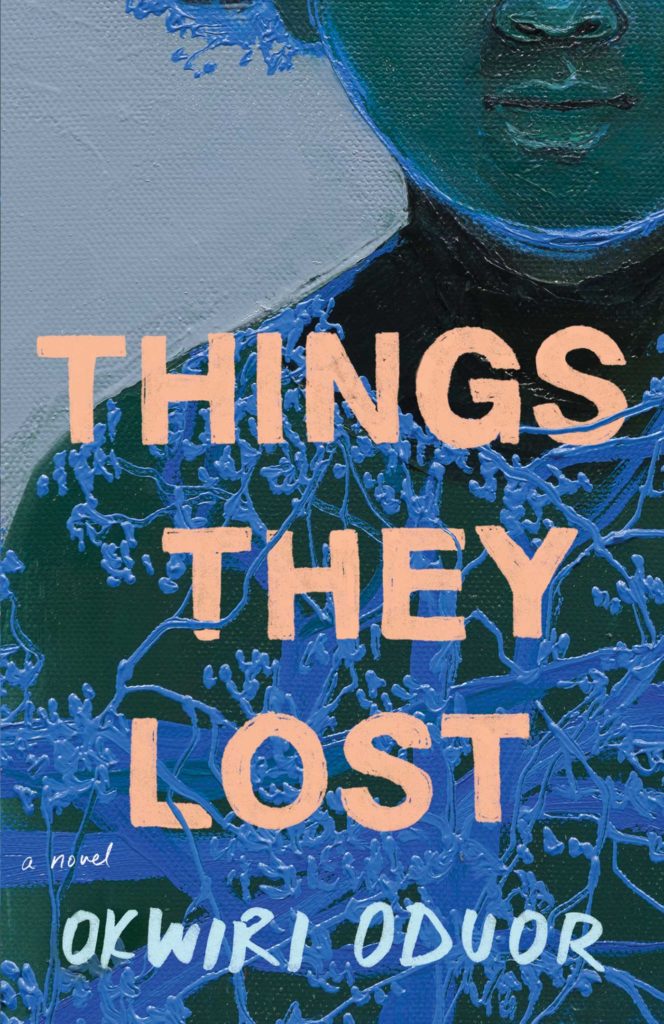
Chapter 1
December staggered in like a weary mud-encrusted vagabond who had been on her way to someplace else but whose legs had buckled and now she was here. On the second, which in Mapeli Town was known as Epitaph Day, the townspeople awoke while the sky was still silver, still tinged with ruffles of pink and blue. They gargled salt water. They greased their elbows. They tucked a flower in their hair or pinned it on their lapel. They marched to the schoolhouse, where the flag flapped at half-mast for all those who had drowned in the river or choked on a fishbone or stepped on a puff adder while walking to the marketplace. With eyes bleary and heads bowed, the townspeople thought of all the ones they had ever lost. They sang Luwere-luwere-luwere until their voices crackled. They murmured, Go well, Opembe, or, Greet our people, Makokha.
Then Mama Chibwire opened her shack and the townspeople gathered inside. They sat on the wooden benches with strings of sunlight spilling through holes in the tin roof and burning their eyes. They hunched over their knees and exchanged spittle on the unwashed mouths of their brew mugs. They called all their dead ones by name. There was Netia, who had sometimes chewed on shards of broken glass as though these shards were roasted groundnuts. There was Dora Petronilla, who had never bought any salt of her own, who always knocked on neighbors’ doors and said, Abane! I forgot again! Will you help me with some? There was Mwatha, who, after a treacherous pregnancy, birthed a reticulated python. There was Sagana, whose mouth had only wanted to eat wild, wood-rotting fungi. There was Halima, who had sold fried termites by the roadside, and Wambua, who had been born with a patch of gangrene on his calf, and Njambi, who had liked to stain her teeth red with henna.
The townspeople shook their heads, their hearts hurting afresh. Akh! they said. Death is tart, and death is cloying! And they sobbed into their brew mugs. And their hands sought out other fingers to clasp. And their arms sought out other arms to cling to. They had Lost. Later, when all the dead ones had been thought of in turn, and when all the brew in Mama Chibwire’s barrels was gone, Sospeter Were brought out his PA system and radio cassette player, and the townspeople tied cardigans round their waists and writhed to It’s Disco Time with Samba Mapangala & Orchestre Virunga. In that moment, with the ground throbbing beneath the soles of their feet, and with sweat trickling down the vales of their backs, the townspeople thought to themselves that they too could not wait to die, could not wait to leave behind people who would gather each Epitaph Day and think of them like this.
Some townspeople did not observe Epitaph Day. They had not lost anyone that year, or the ones they had lost were not worth remembering at all, or they had little inclination to share in the town’s collective memory and rituals of grief. These people sat groggily on the edges of their beds. They stretched to thaw the cluster of knots in their shoulders. They tugged at their bedspreads and wriggled out of their sleeping clothes. They listened to the morning news—about Benazir Bhutto being sworn in as prime minister of Pakistan, and about the nuclear tests in French Polynesia. They listened to news about the flooding at the Nyando River in Kisumu, about the landslides in Marsabit, about the submerged maize crops in the Kericho Highlands. The radioman said that 1988 was the wettest year the country had seen in more than two decades.
Mako! the townspeople murmured to themselves, their mouths wide with dismay. They wondered which petty godhead had been offended and was now throwing childish tantrums like this. Shaking their heads, they gargled salt water. They greased their elbows. They stood at their kitchen sinks and soaked yellow scones in sweet black tea. They breathed in the tripe that was trapped in the lace edges of their drapes. In one tenement, Nyokabi sat on a footstool in her little kitchen, her wrapper mottled with clods of soil, a newspaper sheet on the floor before her. She bent over it, flaking yams, splitting them, tossing them into a basin of water. In another tenement, Subira, a housemaid, put on her madam’s best frock and stuffed her madam’s sleeping infant inside a duffel bag, then walked to the end of the street and took the bus to Kaloleni. Born-Free Opondo, whose flat was filled with cats and roosters and dusty bric-a-brac, rummaged through the papers stacked on his sitting room sofa, searching for his copy of Mabepari wa Venisi. Silas Hosanna—the lorry driver—rammed into a cow. With his hat folded beneath his arm, and with his face rumpled with sorrow, he dragged the cow’s carcass to Mutheu Must Go Café. He knocked on the door, and when Sindano, the proprietor, came out, he said to her, Tell your mama I will buy her a new cow. Sindano smacked her lips and said, You can tell her yourself. She is buried in the old cemetery, behind the abandoned posho mill. Didn’t you hear the old bird ate a razor in her bread and kicked the bucket?
Incense curled in the air and its gray ash collapsed in heaps on window ledges. Fingers spread cold pomade on scalps. Clay mugs clinked against the stone receptacles of kitchen cabinets. The day crickets shrieked. And the wind, it rasped against the backs of spittlebugs, and it yanked bloomers off the wash lines and flung them across the sky. The clouds swayed. The string of alleys and thoroughfares twisted and tangled, so that people walking out in the street arrived to find that their legs were at home but their torsos still out in the marketplace. In the haze, a cat was not a cat but a length of twine twirled around a spool. A bird was not a bird but a cavernous bird-shaped room where chords of surging sound hung on painted walls. The town was not a town but a blood lily, shuddering, furling and unfurling, and then wilting, clenching into itself.
The townspeople unrolled reed mats on their verandas and sprawled themselves out. The red wind howled in their ears and lulled them. In their sleep, they left themselves and went elsewhere—they were on the road to Lungalunga, or inside the underwear drawers of old women’s cupboards, or crouched on curtain boxes, beside dead geckos and cotton balls and browning birthday cards. The bodies they left behind on the reed mats were stiff and soggy, and mongrels came and licked the salt that clung to their temples. Aphids and katydids and lacewings hopped about. Weeping willows swayed, sprinkling fresh dew on the verandas. Nectar dripped from the orange tubes of lion’s ear flowers. Ibises reeled through the air, gripping squirming fish between their beaks.
A whirlwind sprouted from the ground. It flung gravel at the slumbering townspeople to see if they would stir, and when they did not, it skipped from door to door, flinging open kitchen cabinets, pilfering measuring jugs and soup ladles and bread pans. Beyond the tin houses that crinkled in the heat, beyond the fields of bristle grass and juniper bushes and sunflowers bobbing drowsily, beyond the grebes and albatrosses wading in the roiling mud of the riverbank, beyond the papyrus reeds and sycamores and wattle trees, beyond the hill that sometimes shifted, as though from one aching foot to another, beyond all of that, was something else.
***
Read the full excerpt on Simon & Schuster
Buy Things They Lost: Amazon
Excerpted from THINGS THEY LOST by Okwiri Oduor, published by Scribner, an imprint of Simon & Schuster, Inc. Copyright © 2022 by Okwiri Oduor.


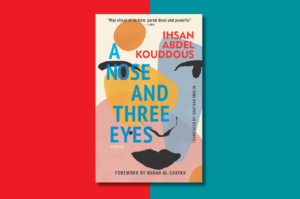
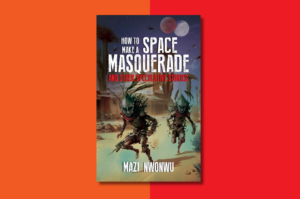
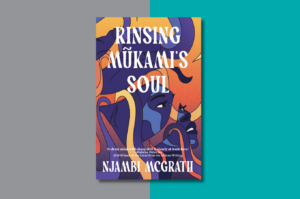
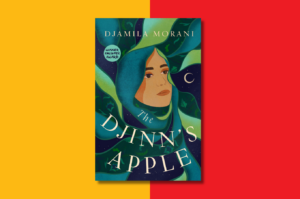
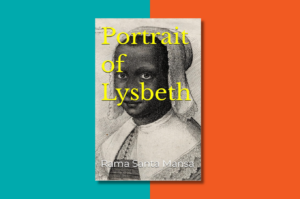


COMMENTS -
Reader Interactions